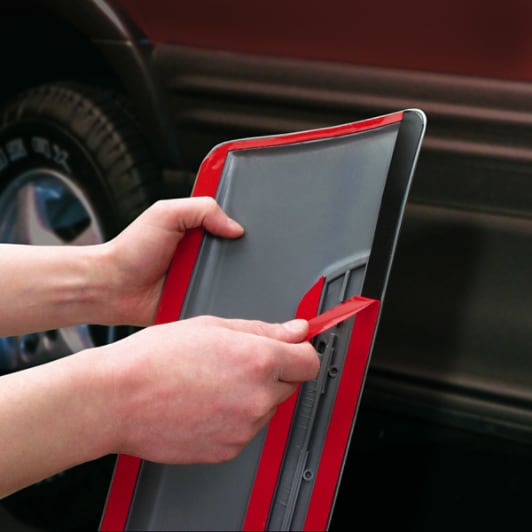Modern Car Service Tips – Part 1: On Time Oil Changes With the Right Oil
Modern Car Service Tips – Part 1: On Time Oil Changes With the Right Oil
 Servicing your car and having your mechanic give your vehicle the once over every 6 months, or sooner if you travel higher distances, is one of the best ways to fix faults before they become a larger problems and so avoid unnecessary higher repair bills.
Servicing your car and having your mechanic give your vehicle the once over every 6 months, or sooner if you travel higher distances, is one of the best ways to fix faults before they become a larger problems and so avoid unnecessary higher repair bills.
Some of the common things that can be picked up with a regular car service include: changing worn drive belts or perished radiator hoses so they don’t leak and so avoiding damaging the radiator or over heating the engine; changing brake pads before they grind metal on metal so you avoid damaging the brake rotors; and regularly changing transmission fluid to maximise its life span.
But just because you own a more modern car does not mean you need to service it less, in fact there are some important issues with modern cars that you should be aware of so that you maintain them correctly to get the best performance and fuel economy. In this article we discuss timely oil changes and using the correct type of engine oil.
Now most people know you need to change the oil in the engine of a car every 3 to 6 months or every 5000 or 10,000 km. That is even more vitally important for modern cars. You may have been able to get away with only changing the oil in an older car every 10,000km or so, but in modern cars you start to lose performance significantly and potentially damage the engine.
The reason for this has to do with some of the new high tech features of today’s engines. Modern engines use variable cam timing to generate more power and reduce the amount of fuel you use, thus reducing emissions. Now I’m not going to explain everything about variable cam timing here, but you need to know that it relies on clean engine oil to operate. Put simply in order for it to work properly you must have a good flow of oil around the engine.
When your oil is new it flows easily and everything works as it is designed to. But as you run the engine the oil can become thicker with a build-up of carbon deposits and sludge and here is where the challenges come in. The oil needs to flow through the oil ports to operate the spool valves which run the variable cam timing. However, as the oil gets thicker, and deposits start to build up in the engine, the flow gets restricted. The variable cam timing does not work as it should, you lose power and you find yourself using a much greater amount of fuel and higher emissions. Left unattended this problem has the potential to cause serious damage to your engine.
Further to this is the importance of using the correct type of oil for your car. Modern vehicles are now using special synthetic oils in their engines, compared to older standard oils. The synthetic oils have special properties which the new engines require to achieve optimum performance. And there are different types of synthetic oils used for different makes and models of cars, so it is important to get the right type. Some modern cars cannot function with older types of oil, some will not start if you put the incorrect type of oil in the engine after an oil change. There is a greater risk of doing damage to your engine if the wrong oil is added. So for new cars synthetic oils are recommended by all manufactures. But remember that they do have be changed regularly as specified by the manufacture.
If you have a special performance vehicle, then I emphasise what I’ve just discussed about using the correct oil and changing it regularly, so as to avoid a drastic reduction in performance.
So how do we avoid power loss and fuel consumption problems in modern cars? Here are some simple tips:
1) Book your car in every 6 months regardless of how many kilometres you have done for a check over, if you travel low kilometres.
2) Ask your mechanic to use ‘engine flush’ when doing an oil change. It loosens sludge and helps remove deposits from the engine when the oil is changed. Most mechanics unfortunately miss this step which is important for cleaning the engine properly and removing the deposits that can build up in the oil ports and spool valves.
3) Ensure that your mechanic is using the correct type of synthetic oil for your make and model of car, especially on a common rail diesel vehicle.
4) Have injector cleaner added to the fuel tank at every service.
5) Have tyre pressures checked regularly.
With fuel prices on the rise, we need to do all we can to reduce our fuel costs. Regular servicing, with engine flush and using the correct oil will help keep your car running to its optimum performance ensuring you keep your running costs down and you always have power when you need it.
